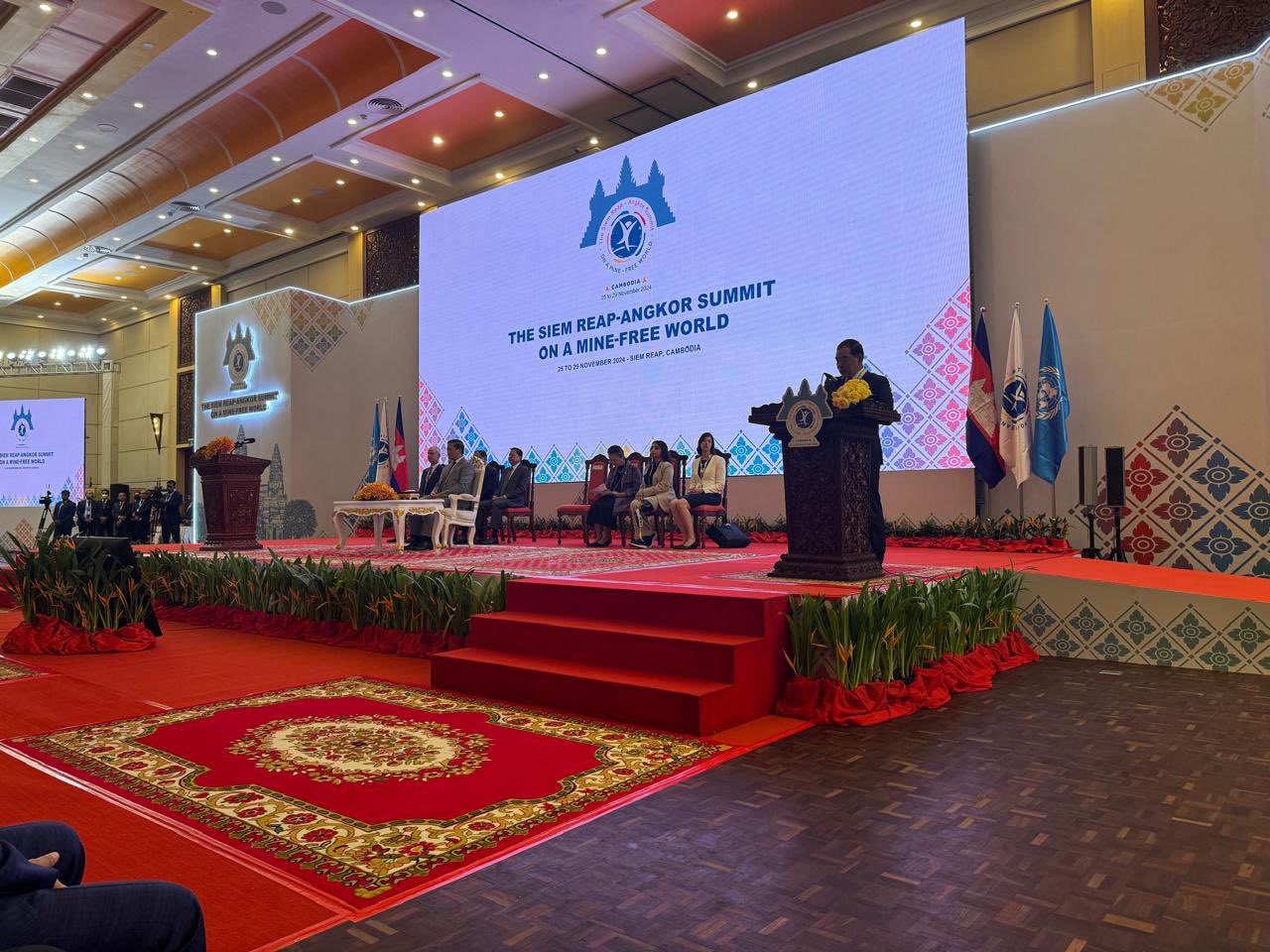Mine Ban Convention meeting in Siem Reap: no to new weapons in Ukraine
A few days after the US approved the transfer of these weapons to Ukraine, the review conference of the Ottawa Convention, which regulates the ban on anti-personnel mines, got underway in Asia, the first time in this continent. Even after decades of demining and clearing land, Cambodia is still dealing with the serious consequences that mines have on civilian lives.
Siem Reap (AsiaNews) – A few days after the United States approved the transfer of anti-personnel mines to Ukraine, which is trying to reverse Russia's invasion that began in February 2022, the Fifth Review Conference of the Convention on the Prohibition of the Use, Stockpiling, Production and Transfer of Antipersonnel Mines and on Their Destruction, informally known as the Ottawa Convention, opened in Cambodia.
The Siem Reap-Angkor Summit on a Mine-Free World (the summit’s official name) opened on Monday until Friday (25-29 November).
Pope Francis, addressing the participants in a letter signed by Secretary of State Pietro Parolin, expressed sorrow for the fact that, 25 years after the Convention entered into force, anti-personnel mines continue to be used.
"Conflicts are a failure of humanity to live as a single human family,” said the pontiff, who stressed that landmines continue to silently claim innocent lives – especially those of children – even long after the cessation of hostilities.
This is the first time that the conference has been hosted in Asia, particularly in Cambodia, a country where anti-personnel mines, used until the overthrow of the Khmer Rouge in 1979, have had a devastating impact on the population.
According to the HALO[*] Trust, a humanitarian non-government organisation that works primarily to clear landmines and other explosive devices, more than 65,000 people have been the victims of mine, 18,800 dead and almost 45,000 wounded. Over 9,000 had to undergo amputations.
Although most minefields in Cambodia have been cleared, a rising population is forcing many families to move to areas that have not yet been cleared, especially in the northwest of the country on the border with Thailand.
In his opening speech, Prime Minister Hun Manet (who came to power in an undemocratic manner by succeeding his father, Hun Sen, in elections in which the opposition was not allowed to participate) highlighted Cambodia's progress in terms of mine clearance.
“You have arrived in a nation that epitomizes resilience and hope – a nation that has journeyed from being one of the most heavily mine-affected countries to become a leading advocate for a mine-free world,” the prime minister said.
“To date, we have destroyed over 1 million anti-personnel mines and 3 million explosive remnants of war (ERW). [. . .] Casualties have plummeted from an average of over 4,300 per year in 1996 to fewer than 100 annually in the past ten years. [. . .] Land that was once minefields, have now become fertile grounds for farming, urbanization, and development, lifting millions out of poverty,” the prime minister said.
“Nevertheless,” he added, “our journey is far from over. We still have over 1,600 square kilometers of contaminated land that is affecting the lives of approximately 1 million people. This is why ending the negative impact of mines and explosive remnants of war (ERW) and promoting victim assistance is indeed a cornerstone of our sustainable development agenda.”
The review conference on the Anti-Personnel Mine Ban Treaty is held every five years. It is attended by representatives of member states, civil society groups and international organisations to take stock of the state of the Convention.
This is the first summit of its kind since the invasion of Ukraine, where it is estimated that two million anti-personnel devices have already been placed.
“Anti-personnel mines have no place in this world. This transfer will leave a deadly legacy for Ukrainian civilians for generations to come. It is profoundly disturbing that the United States would knowingly provide a weapon that Ukraine is forbidden to use under international law,” said Tamar Gabelnick, director of the International Campaign to Ban Landmines (ICBL), an NGO group fighting to abolish arms production. Ukraine is a signatory to the treaty.
“As the world's largest donor to mine clearance efforts, the United States is now paradoxically contributing to the very problem it spends hundreds of millions of dollars annually to solve,” Gabelnick added.
[*] Hazardous Area Life-support Organization.
08/11/2021 18:25
29/01/2019 09:23







.png)










